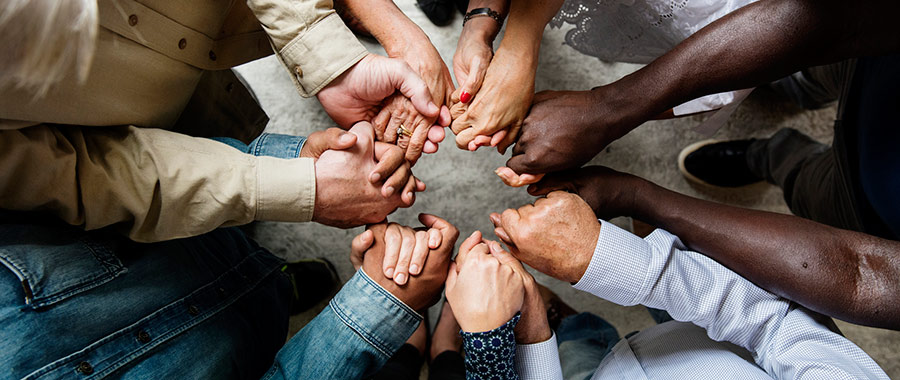In a world increasingly characterized by individualism, the concept of true consultation presents a profound dichotomy. True consultation transcends mere discussion; it embodies a sacred process of collective decision-making that fosters unity, inclusivity, and equality among participants. The Bahá’í teachings offer invaluable insights into this noble endeavor, illustrating how the beauty of true consultation can facilitate meaningful dialogue and produce outcomes that resonate with the collective will. Emphasizing the importance of collaboration, these teachings prompt us to reconsider our perspectives regarding decision-making in personal, communal, and even global contexts.
At its core, true consultation entails a deliberate effort to synergize diverse viewpoints. It nurtures an environment where participants feel empowered to express their thoughts freely. By embracing a methodological approach to discourse, community members can articulate their thoughts without the overshadowing influence of hierarchy or dominance. This egalitarian essence constitutes the bedrock of successful consultations.
A fundamental tenet of true consultation is the principle of unity in diversity. In a consultative setting, it is crucial to recognize that each contributor brings unique experiences and insights to the table. Hence, achieving consensus does not imply the obliteration of individual perspectives; rather, it requires the integration of varying viewpoints into a cohesive collective understanding. Therein lies the beauty: true consultation engenders a tapestry of thoughts, weaving together distinct threads into a harmonious whole. This receptiveness to diversity empowers communities to mine the collective wisdom that arises when individuals genuinely collaborate.
Moreover, true consultation necessitates an abandonment of preconceived notions. Participants are encouraged to enter discussions with an open heart and mind, fostering a sense of humility. Such an approach opens the door to genuine inquiry and contemplation, allowing participants to explore new dimensions of understanding. By eschewing prejudgment, individuals embrace the possibilities that arise through the interplay of ideas. The willingness to let go of ego and embrace vulnerability is crucial for this transformative experience.
Importantly, true consultation also safeguards the process against the perils of contention. When differences inevitably arise, participants are called to engage with sincerity and compassion rather than hostility or defensiveness. Here, the focus shifts from winning arguments to uncovering truths. This perspective shift cultivates an atmosphere conducive to intellectual and emotional growth. It promotes the principle that the underlying goal of consultation is to attain a shared vision that reflects the aspirations of all participants, rather than endorsing individual agendas.
The beauty of true consultation lies in its generative potential. When individuals are united by a common purpose, their collaborative efforts can transcend challenges and yield innovative solutions. A decision reached through true consultation is not merely a product of negotiation but a manifestation of collective aspiration. This process enhances accountability; each participant becomes invested in the outcome, further solidifying the bonds of community and engagement. The resulting decisions resonate on multiple levels, engendering a sense of ownership among participants.
As we delve deeper into the principles of true consultation, it is essential to consider the impact of spiritual principles on this practice. The Bahá’í teachings emphasize the need for individuals to cultivate virtues such as patience, forbearance, and love. These qualities anchor the consultative atmosphere, allowing participants to navigate challenges with grace and insight. By embodying these virtues, individuals create a space that not only facilitates decision-making but nurtures personal and communal growth.
The implementation of true consultation also extends beyond small communal gatherings. In larger organizational frameworks, the principles remain equally pertinent. Institutions that adopt true consultation as a governing practice can harness collective wisdom to address complex challenges and adapt to the shifting societal landscape. This practice ensures that decisions align with the collective welfare rather than the interests of a select few, accentuating the democratic ethos of true consultation.
Furthermore, the role of facilitators in this process cannot be overstated. Effective facilitators serve as guides, ensuring that discussions unfold constructively and that every voice is heard. Their expertise in navigating group dynamics and maintaining focus on the collective objective enhances the richness of the consultative experience. By sustaining an environment of respect and encouragement, facilitators can steward the conversation toward collective enlightenment.
As communities and organizations embrace the beauty of true consultation, they also unlock a transformative potential that reshapes their narrative. Consultation becomes an engine for change, inspiring action and mobilizing individuals toward the common good. This collective action, borne out of shared understanding, fosters resilience in facing challenges both locally and globally.
The ultimate promise of embracing true consultation lies in the shift it engenders in our worldviews. Those who engage in this process discover not only solutions to pressing issues but a deeper sense of connection to one another and a renewed commitment to social harmony. True consultation thus embodies more than just a decision-making framework; it is an invitation to embark on a journey toward collective evolution, one that holds immense beauty and promise for humanity at large.
In conclusion, the principles of true consultation offer a refreshing paradigm that challenges conventional decision-making dynamics, urging us to honor the collective wisdom inherent in human interactions. By practicing true consultation, individuals and communities can cultivate a profound sense of unity, leading to enriched relationships, sustainable solutions, and a shared vision for the future. As we navigate the complexities of our interconnected world, the beauty of this collective decision-making process becomes a beacon of hope—reminding us that together, we can transcend singular perspectives and create a more harmonious and equitable society.
